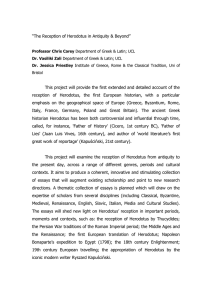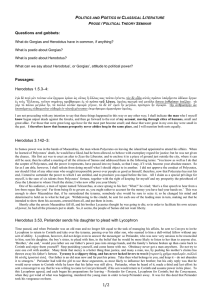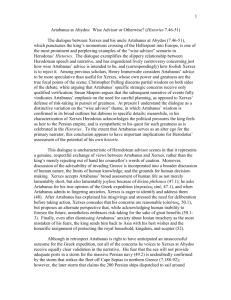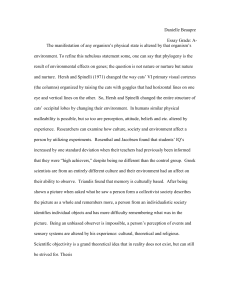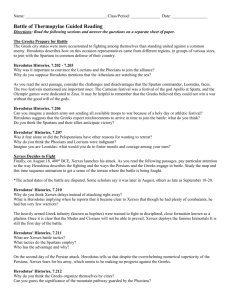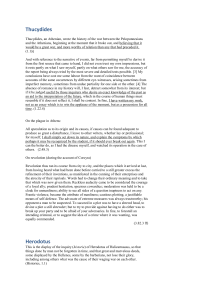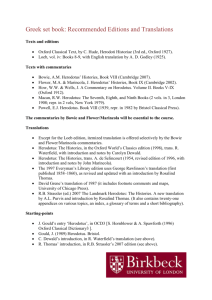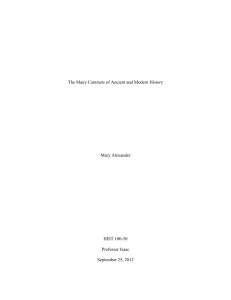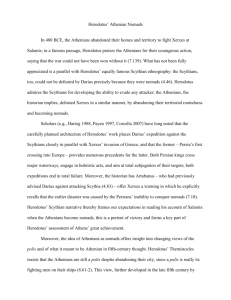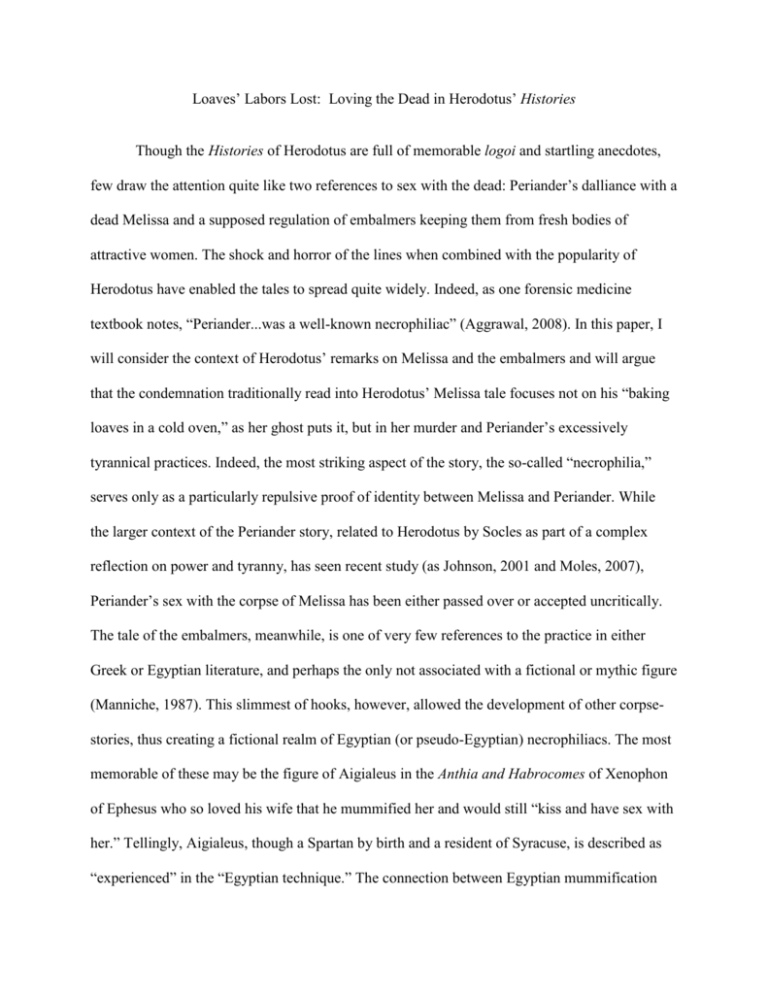
Loaves’ Labors Lost: Loving the Dead in Herodotus’ Histories
Though the Histories of Herodotus are full of memorable logoi and startling anecdotes,
few draw the attention quite like two references to sex with the dead: Periander’s dalliance with a
dead Melissa and a supposed regulation of embalmers keeping them from fresh bodies of
attractive women. The shock and horror of the lines when combined with the popularity of
Herodotus have enabled the tales to spread quite widely. Indeed, as one forensic medicine
textbook notes, “Periander...was a well-known necrophiliac” (Aggrawal, 2008). In this paper, I
will consider the context of Herodotus’ remarks on Melissa and the embalmers and will argue
that the condemnation traditionally read into Herodotus’ Melissa tale focuses not on his “baking
loaves in a cold oven,” as her ghost puts it, but in her murder and Periander’s excessively
tyrannical practices. Indeed, the most striking aspect of the story, the so-called “necrophilia,”
serves only as a particularly repulsive proof of identity between Melissa and Periander. While
the larger context of the Periander story, related to Herodotus by Socles as part of a complex
reflection on power and tyranny, has seen recent study (as Johnson, 2001 and Moles, 2007),
Periander’s sex with the corpse of Melissa has been either passed over or accepted uncritically.
The tale of the embalmers, meanwhile, is one of very few references to the practice in either
Greek or Egyptian literature, and perhaps the only not associated with a fictional or mythic figure
(Manniche, 1987). This slimmest of hooks, however, allowed the development of other corpsestories, thus creating a fictional realm of Egyptian (or pseudo-Egyptian) necrophiliacs. The most
memorable of these may be the figure of Aigialeus in the Anthia and Habrocomes of Xenophon
of Ephesus who so loved his wife that he mummified her and would still “kiss and have sex with
her.” Tellingly, Aigialeus, though a Spartan by birth and a resident of Syracuse, is described as
“experienced” in the “Egyptian technique.” The connection between Egyptian mummification
and sex with the dead in the Greek mind was first made by Herodotus in his very popular
Histories (Lloyd, 1976 and Asheri et al., 2007). By reexamining the anecdotes about both
Melissa and the embalmer more carefully, I will show that the degree to which these stories have
been leaned upon to support far wider conclusions is inappropriate given the ambiguous nature
of Herodotus’ own comments.
Works Cited:
Aggrawal, Anil. Forensic and Medico-Legal Aspects of Sexual Crimes and Unusual Sexual
Practices. Boca Raton, FL: CRC Press, 2008.
Asheri, David et al. A Commentary on Herodotus, Books I-IV. Oxford: Oxford University Press,
2007.
Johnson, D.M. “Herodotus’ Storytelling Speeches: Socles (5.92) and Leotychides (6.86). CJ 97.1
(2001). Pp. 1-26.
Lloyd, Alan. Herodotus, Book II. Leiden: Brill, 1976. 3 volumes.
Manniche, Lise. Sexual Life in Ancient Egypt. London: KPI, 1987.
Moles, John. “‘Saving’ Greece from the ‘ignominy’ of Tyranny?: The ‘famous’ and ‘wonderful’
Speech of Socles (5.92).” Reading Herodotus: A Study of the Logoi in Book 5 of Herodotus’
Histories. Irwin and Greenwood, eds. Cambridge, UK: Cambridge University Press, 2007. Pp.
245-268.

